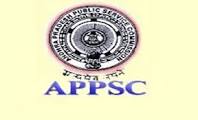APPSC Hostel Welfare Officer Syllabus – APPSC Hostel Welfare Officers (Grade-II) Syllabus & Exam Pattern: APPSC Hostel Welfare Officer Syllabus is available here. Andhra Pradesh Public Service Commission Hostel Welfare Officers (Grade-II) Syllabus & Exam Pattern had given here on our website for free download. Candidates who applied for APPSC Hostel Welfare Officer (Hostel Welfare Officers (Grade-II)) Recruitment have started their Exam preparation for the Written Test must download the pdf of APPSC Exam Syllabus and Exam Pattern pdf for free download. All those applicants can check the APPSC Hostel Welfare Officer Syllabus and can download it. Here, we are providing the APPSC Hostel Welfare Officer’s Previous papers along with solutions. Click the below links to download the APPSC Hostel Welfare Officer Previous Papers, Syllabus, and Exam Pattern. Get APPSC Hostel Welfare Officer Syllabus 2023 and Exam Pattern pdf for free download.
APPSC Hostel Welfare Officer Syllabus 2023 Highlights
| Organization | Andhra Pradesh Public Service Commission (APPSC) |
| Posts | Hostel Welfare Officers (Grade II) |
| Category | Syllabus |
| Selection Process |
|
| Job Location | Andhra Pradesh |
| Official Website | psc.ap.gov.in |
APPSC Hostel Welfare Officer Gr-II Vacancies Selection Process
- Prelims Test (If Necessary)
- Mains Examination
- Interview
- Document Verification
APPSC Hostel Welfare Officer Exam Pattern 2023
| Name of the Subjects | No. of Questions | Maximum Marks | Time Duration |
| Paper – I: General Studies & Mental Ability | 150 Q’s | 150 Marks | 150 Minutes |
| Paper – II: Related Subjects | 150 Q’s | 150 Marks | 150 Minutes |
| Total Time | 300 Minutes | ||
| for each wrong answer will be penalized with 1/3rd of the marks prescribed for the question in all Objective type papers | |||
APPSC Hostel Welfare Officer Syllabus 2023 PDF HWO Grade II Exam Pattern
Paper I – General Studies & Mental Ability
- Events of national and international importance.
- Current affairs- international, national, and regional.
- General Science and its Applications to the day to day life Contemporary developments in Science & Technology and Information Technology.
- A social-economic and political history of modern India with emphasis on Andhra Pradesh.
- Indian polity and governance: constitutional issues, public policy, reforms and e-governance initiatives with specific reference to Andhra Pradesh.
- Economic development in India since independence with emphasis on Andhra Pradesh.
- The physical geography of the Indian sub-continent and Andhra Pradesh.
- Disaster management: vulnerability profile, prevention, and mitigation strategies,
- Application of Remote Sensing and GIS in the Assessment of Disaster.
- Sustainable Development and Environmental Protection Logical reasoning, analytical ability, and data interpretation.
- Data Analysis:
a) Tabulation of data
b) Visual representation of data
c) Basic data analysis (Summary Statistics such as mean, median, mode, variance, and coefficient of variation) and Interpretation - Bifurcation of Andhra Pradesh and its Administrative, Economic, Social, Cultural, Political, and Legal Implications/Problems.
Paper II – Related Subject (Degree Standard)
(A) Foundation Of Education
- i) Nature and Scope of Philosophical and Sociological Foundations of Education.
- ii) Idealism; Naturalism; Pragmatism; Realism; Existentialism;
- iii) Gandhi; Tagore; Aurobindo; Vivekananda; Jiddu Krishna Murthy;
- iv) Socialization and Education; Social change and Education; Culture and Education;
Modernization and Education; Equality of Educational Opportunities; Education of Weaker Sections.
(B) Educational Psychology
I. Introduction To Educational Psychology
- A relationship between Educational Psychology.
- Nature and Scope of Educational Psychology.
- Methods of Educational Psychology
2. Growth and Development
- Principles of Growth and Development.
- Stages of Development-Infancy, Childhood, Adolescence, and aspects of development – Physical, Mental, Social, and Emotional and its Educational implications to classroom teaching and education.
3. Learning
Nature of Learning, Theories of Learning (Behavioral, Cognitive, and Social) and its relevance to classroom teaching, learning, and Motivation; Various methods of motivation (intrinsic and extrinsic) and their applications for classroom teaching.
4. Individual Difference And Its Assessment
Meaning and significance of the study of individual differences. Inter and Intra
Individual difference and its assessment. The concept of Personality and its assessment (Projective and Non-Projective methods).Understanding and helping learners with special needs – poor achievers, underachievers, low-level of intellectual functioning; giftedness, and creativity. Need and significance of guidance and counseling in schools.
5. Statistics
Statistics-Concept and its need for understanding the behavior of learners and teachers.
Measures of Central Tendency.
Measures of Variability.
Correlation and various methods of computing correlation.
(C) Trends In Education
- Universalization of Education- Significance, constitutional guarantee, problems involved in implementing. Quality of Primary Education-Minimum Level of Learning Approach.
- Wastage and stagnation in Education-Meaning, causes, problems, and remedial measures.
- Adult Education and Functional literacy-Meaning, scope, problems involved, and strategies for remedial action.
- Family life and population Education-the problem, objectives at the Secondary level
creating awareness, difficulties in implementing, strategies to spread the right type of family life, and population education. - Moral Education- meaning and Scope, approach to Moral Education, Difference
between Moral and Religious Education, Practical Work. - Non-Formal Education- contemporary significance, problems, methodology, motivational aspect, and implementation.
- School and Community Relationships-need and importance, ways of bringing them
together, making use of community resources persons, and some practical strategies to
facilitate appropriate relationships. - A medium of instruction-Problem, Language in India, three language formula, its
implications and difficulties in implementing the formula. - National and Emotional integration- meaning, nature, problems, implementation
celebrating national days and the role of schools and teachers. - International understanding-education of peace, disarmament, and coexistence, meaning, nature, significance, developing a broader perspective in the mind of students.
- Education of the socially and culturally disadvantaged- meaning-Significance problems, equality of opportunity, and strategies to implement the meaningful program.
- Lifelong Education-meaning, need, and scope, approach, and role of teachers.
- Teacher Education-pre-service and in-service-Professional Organizations Teachers.
- Vocational Education and Vocational of Education.
- Common Entrance Examinations and Centralized admissions into the basic
courses in Andhra Pradesh. - Recommendations of various Education Commissions and Committees

